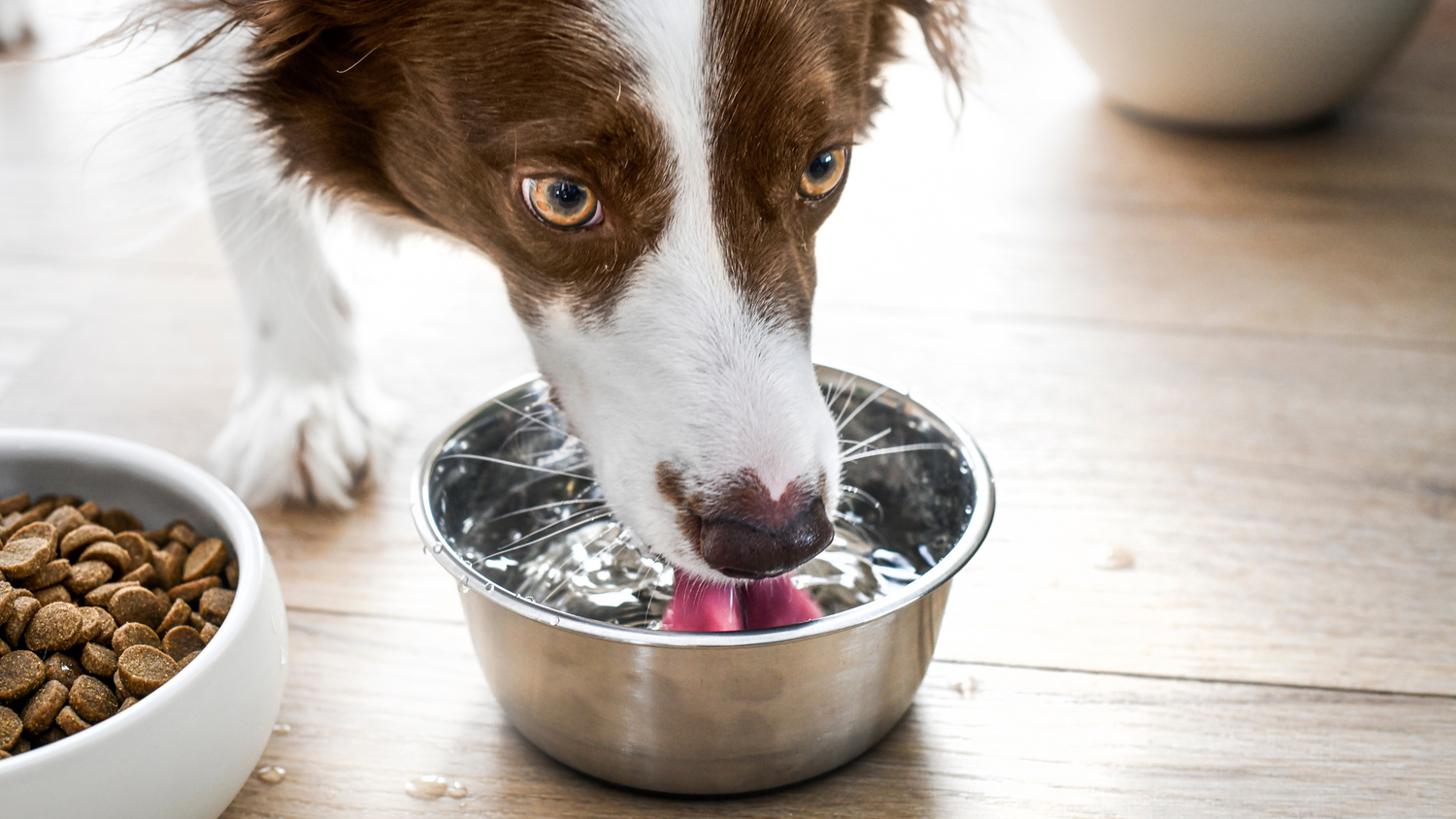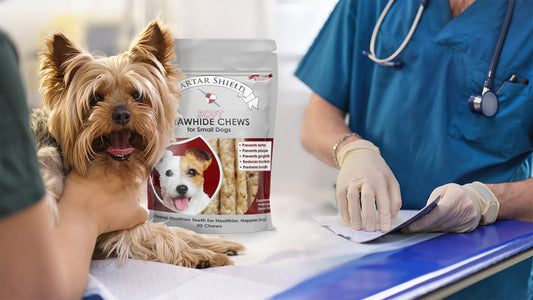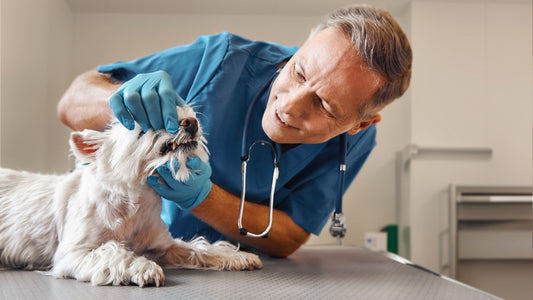Just like humans, dogs need plenty of water to stay healthy. Water is essential to virtually every body function: It helps transport oxygen and nutrients through the bloodstream, aids in digestion, lubricates joints, protects organs, and helps regulate body temperature. But how much water do dogs really need to stay happy and healthy?
How Much Water Should a Dog Drink?
As a general rule of thumb, the American Kennel Club recommends most adult dogs should drink about 1 fluid ounce (about 1/8 cup) of water per pound of body weight, per day. In other words, a 40-pound dog should drink about 40 fluid ounces, or 5 cups of water, every day.

While these guidelines are helpful, it’s also important to remember that every dog is different, and a dog’s individual hydration needs are influenced by their size, diet, activity level, and health, as well as the climate in which they live. For example, very active dogs, or dogs that spend a lot of time outside in hot and humid weather, will likely need more water as they lose fluid faster. Dogs with health conditions, such as liver or kidney disease, often need more water than normal, as do dogs on certain medications. On the other hand, dogs that eat canned or homemade food, which has a higher water content, likely need to drink less water than dogs that eat a dry diet.
What can I do to get my dog to drink more water?
Luckily, healthy adult dogs are usually pretty good about regulating their water intake on their own. In most cases, all you need to do is provide regular access to a clean bowl of fresh water. Sometimes, though, puppies and senior dogs might need a little more monitoring; the same is true for dogs with certain medical conditions and dogs that are anxious, afraid, or in a new environment.
If you’re concerned that your dog might not be getting enough water, it’s a good idea to measure out water as you serve it, and keep track of how much your dog is drinking. You may be able to entice your dog to drink more by placing multiple water bowls in your dog’s favorite places around the house, rewarding or praising your dog when they take a drink, offering ice cubes in hot weather, or mixing a little water with their food. However, if your dog is truly not drinking enough water despite continuous access to clean water, it’s best to visit your vet to rule out a medical condition.
How can I tell if my dog isn’t getting enough water?
Dogs can’t tell you when they are thirsty, but they do exhibit symptoms when they are dehydrated. Signs that your dog could be dehydrated include: lethargy, loss of appetite, dry and sticky gums, a dry nose, and excessive panting when not very active.
You can also check for dehydration at home with one of these quick tests.
- Skin elasticity test: Gently pinch the skin between your dog’s shoulder blades, and watch it as you let go. It should fall back into place immediately; if it does not, that’s a sign of dehydration.
- Capillary refill test: Gently press your finger on your dog’s gums and watch the pressed area turn white. When you take your finger away, the gums should return to their normal pink color within two seconds. If it takes longer, your dog is likely dehydrated.
Dehydration can be deadly, so if you sense that your dog is dehydrated, it’s best to call your vet. In a severe case, your dog will need intravenous fluids. You can help with very mild dehydration by offering small amounts of water every few minutes. Avoid allowing a dehydrated dog to drink too much water too quickly, as this could lead to vomiting and make the problem worse.
Is it possible for my dog to drink too much water?
Just like humans, it’s possible for dogs to drink too much water, leading to water intoxication. Water intoxication can occur quickly when a dog’s body becomes overwhelmed with an excessive amount of water, which disrupts the sodium levels in the bloodstream and can have serious effects on the central nervous system.
Water intoxication is rare. While it is possible to experience it after drinking too much water (usually after heavy exertion), dogs may be more likely to be affected by water intoxication after accidentally ingesting too much while swimming or playing in water, so it’s a good idea to keep an eye on your pet around bodies of water and even sprinklers and hoses.
Psst! Did you know that your dog can fight plaque and tartar while they hydrate? Add Tartar Shield DentaTabs dissolving powder to your pet’s drinking water! Tartar Shield’s water additive is taste- and odor-free, easy to use, and clinically proven to help prevent tartar by up to 50%!



